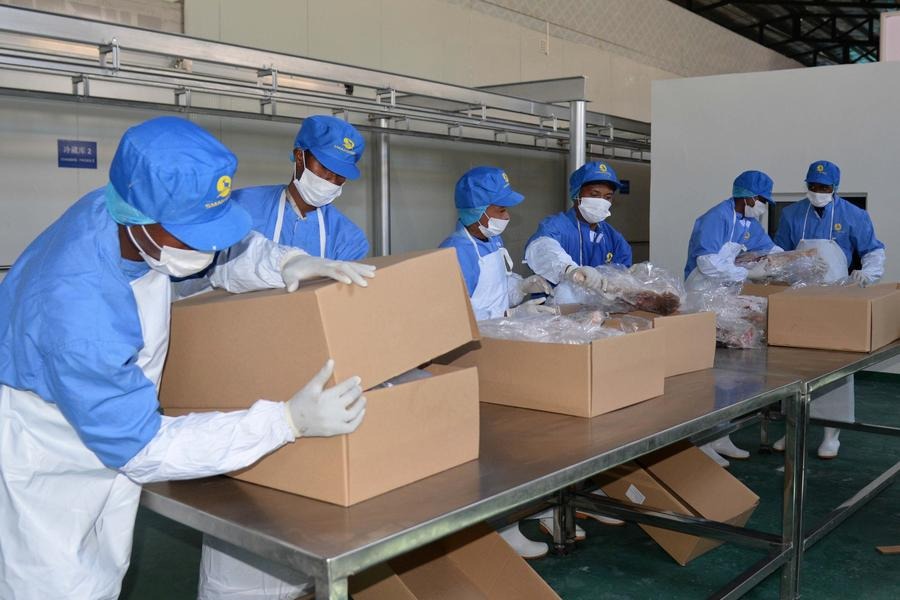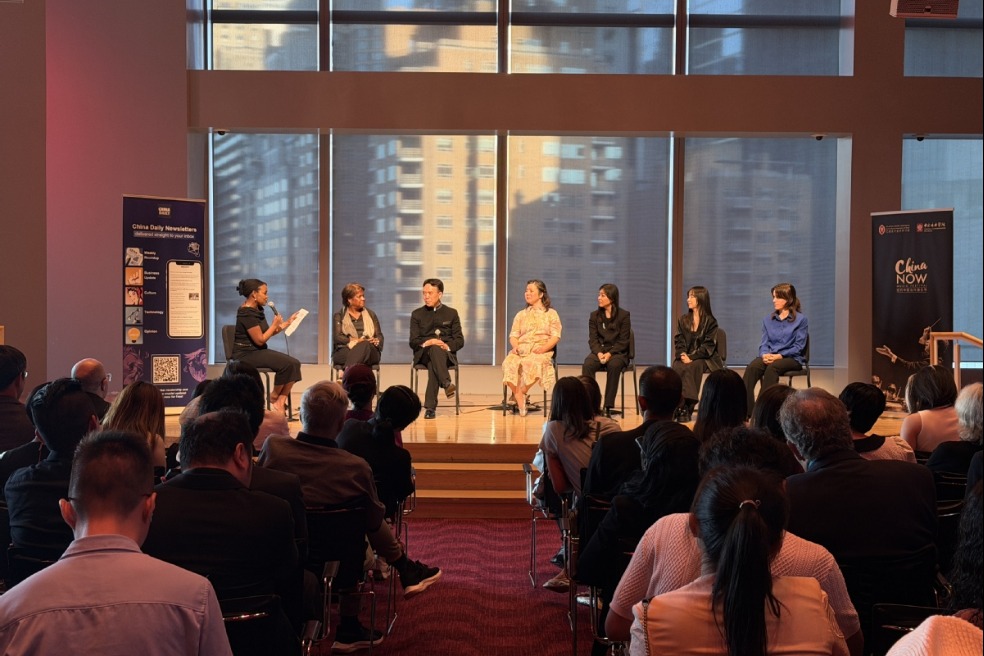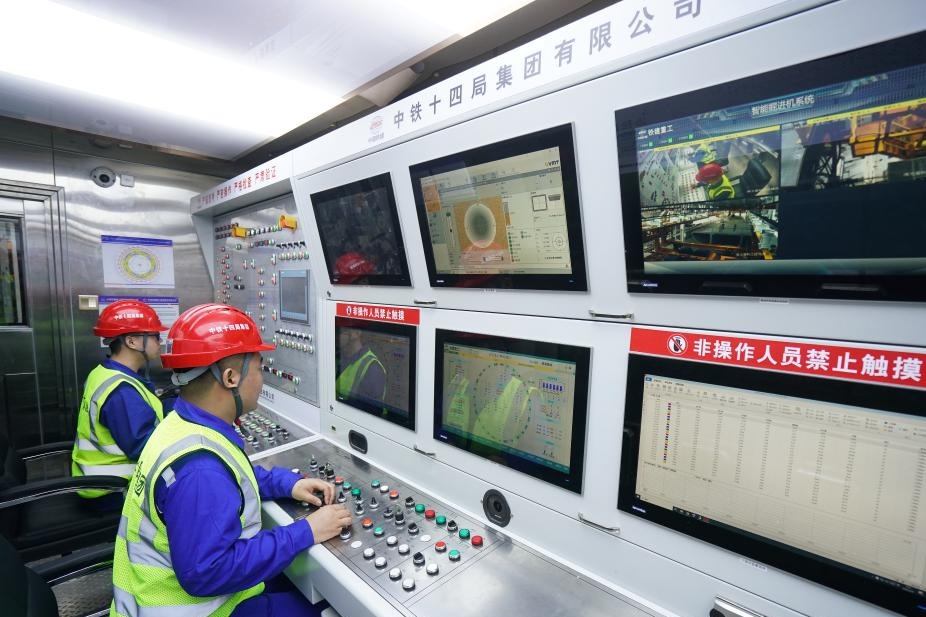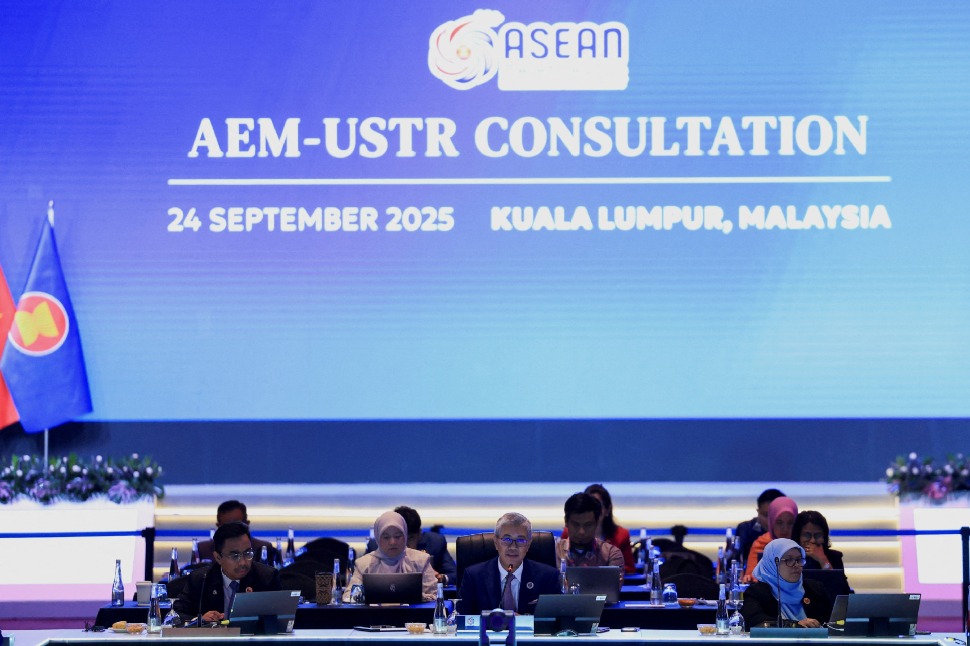Life-saving work of the turtle squad

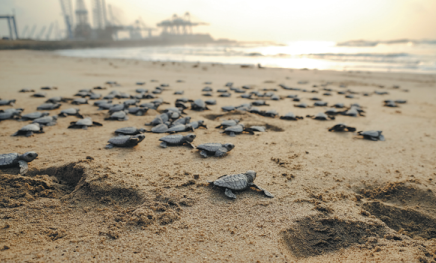
Container terminal is not the only task that Chinese team has on its plate
On a tranquil beach along the Gulf of Guinea, hundreds of thousands of white oval eggs are about to hatch into sea turtles and crawl into the Atlantic Ocean.
Every dry season in West Africa, from October until March, mother sea turtles lay their eggs on the beach of Tema in southeastern Ghana. It is a 150 million-year tradition, the creature dating back to the late Jurassic era.
The normal, quiet life of sea turtles has been disturbed in the modern age. In addition to poachers who take the turtle eggs, stray dogs eat them.
The number of turtle species and their hatchability have decreased in recent years, and a WWF report said all sea turtles species are listed as endangered.
About six types of sea turtles used to live along the Tema coastline, but today only leatherback, olive ridley, and green sea turtles can be seen on the beach, and the numbers continue to fall.
When Liu Wei, a Chinese engineer working for China Harbor Engineering Co's Ghana Tema New Container Terminal Project, was walking on the Tema beach two years ago he found many broken turtle egg shells, most of them appearing to have been damaged deliberately.
"Many baby turtles did not have a chance to see the world before their lives ended," Liu said.
Liu and CHEC engineers first set foot on the beach in June 2016 as work began on building a new container terminal in Tema, about 30 kilometers northeast of Accra, Ghana's capital.
The terminal, expected to take a little more than four years to build, will change the shape of the country's shipping industry and deliver it a complete maritime industry system.
Under the project, 120 hectares of land will be reclaimed from the sea. In addition, the two-lane Tema-Accra Expressway will be upgraded into a six-lane road to ease traffic flow.
In the eyes of its Chinese constructors, the port of Tema is not only the site for the mega project, but should also be a comfortable habitat for the endangered creatures.
After Liu and his colleagues arrived in Tema they formulated detailed plans to protect local biodiversity. To ensure that the sea turtles near the project site can hatch safely, CHEC established a community-based sea turtle conservation and monitoring campaign in November 2017.
A large shelter made of green and orange sunshade net was set up on the beach. This is where eggs are gathered and young turtles are released into the sea after being hatched.
Inside the shelter, many small mounds of sand were formed, some of which were surrounded by small bamboo cages. Each hill was numbered with a tag. A sign at the site says: "Sea turtle hatchery site. Personnel only."
Staff members of the company take turns to conduct around-the-clock inspections on the beach, and the company has recruited animal experts to help hatch turtles.
Turtles usually lay their eggs at night, so Aminyabo Manasseh Yaw, the sea turtle expert at the construction site, often begins his day on the beach at 6 pm.
"I patrol along the beach and help mother turtles when they hatch. After I collect the eggs I have them counted, take them to the hatchery and have them released into the sea."
One day, he said, he found a mother turtle groaning on the beach. The 1-meter-long turtle was preparing to lay eggs, but a blockage in her body made the process difficult and painful.
"The turtle and her eggs were in danger and needed help."
Yaw put on gloves and carefully moved close to the turtle and helped it until, finally, a big egg slid down onto the sand, followed by several more.
By the end of March CHEC's turtle protection team had collected 14,421 eggs on Tema's beaches, and 9,746 turtles were hatched.
The hatch rate of sea turtles is about 10 percent in natural conditions, but thanks to CHEC and its staff the figure in Tema is now 76 percent, Yaw said.
Praveen Kumar, CHEC's environmental manager, said: "This is one of the very valuable works that no commercial company in Ghana is doing. It's only CHEC that feels these sea turtles should be safeguarded from poaching."
Kumar said the company's conservation efforts had yielded positive results, and he said he hopes the practice can be replicated by other contractors on various projects across the country.
















